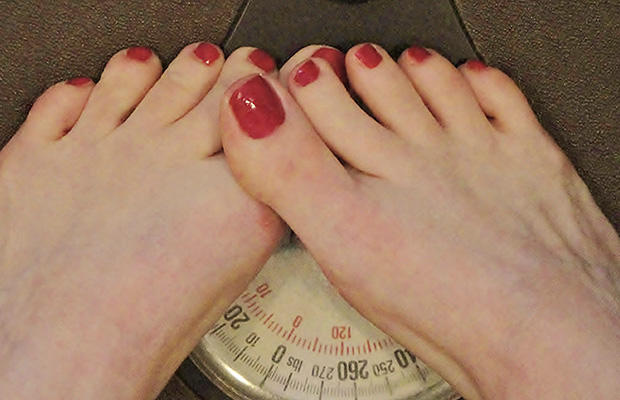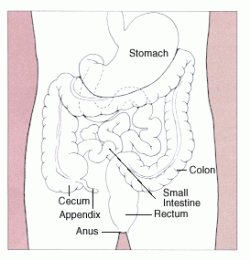20 Weight loss tips
There are many misconceptions in the era of weight loss. Over the years a number of weight loss myths have emerged and this makes the weight loss process a difficult and often unsuccessful process. Weight loss is not a difficult thing to achieve provided that you follow proper, healthy and correct weight loss tips and advice. This article outlines 20 weight loss tips that can help you understand the proper way to loose weight in a fast and healthy way.
1. When we gain weight we blame our metabolism genes, water, thyroid etc
Nobody can say with absolute certainty what causes our weight to increase beyond the «normal». But whatever the cause (increased caloric intake, inadequate nutritional care, poor quality food, food intolerance, decreased tolerance, the obesity gene, increased fat consumption, physical inactivity, carbohydrate consumption, repetitive weight loss diets, hormonal problems or psychological reasons), the most important point is one: We wouldn’t get fat or we would be less fat if we choose our food carefully, consume less and exercise more.
2. Some people weight more because they have a heavier frame.
The differences between a heavier and a lighter frame are a few hundred grams, not kilograms, like some people imagine. Simply, those who have heavier frames have room to weight more than those with the «lighter».
3. All weight loss diets can have a positive effect if you follow them strictly.
There are weight loss diets that cannot bring the desire results even when we follow them properly. This is because they are not personalized, or because we follow them when we are in a bad psychological situation or because they create excessive expectations and this makes us frustrated because they do not take into account our personal preferences and do not fit easily into our lifestyle.
4. When I follow the same weight loss diet with my wife, we can both lose the same number of kilos.
A woman loses weight harder than a man, while men can lose more pounds in the same period than women. Someone living in cold climates may loose weight more easily than someone living in warm climates, while a young person can loose weight more easily than older people. Those who have many unnecessary pounds and those who have not done a weight loss diet can loose the first pounds faster than those with fewer unnecessary kilos or «veterans» of weight loss diets.
5. Criterion of good weight loss diet is losing weight.
A good diet is one that is not unilateral or extreme, it fits in our lifestyle perfectly, helps us to lose weight by reducing the losses from the necessary (muscles) and increasing the losses from the unnecessary (fat) and most importantly when we «end» the diet we have learned how to feed properly, so that in future we do not gain back the lost pounds.
6. A weight loss diet is only valid for a certain period of time.
Weight loss diets may last hours, days, weeks, months or years. Diets with timetables almost always fail and when they do not fail their positive effects are temporary. That is why the adoption of «proper nutrition» is a permanent way to have a normal weight and not a long lasting «diet». You can follow a proper diet forever while you can follow a weight loss diet for a certain period of time (depending on your strengths and willingness).
7. It is not important how to reduce calories as long as you reduce them.
The reduction of calories should be done by limiting foods that contain less useful components, and especially those containing sugar and a lot of calories from fat. If you «cut» calories from all types of food this would deprive from your body nutrients necessary for its normal operation and nutrients that can help your body accelerate fat loss.
8. The calories do not play a role in a weight loss diet.
The body weight decreases when the energy it gets (calories) is less than what it spends (burn). When you eat fewer calories than you need, you lose weight, because the body covers the difference between what we need and what we are resorting to the stocks. This is the only reason that the caloric intake plays a major role in an attempt to loose weight, but this does not mean that weight loss depends solely on the calories.
9. If you do not significantly reduce the calorie intake you will not loose weight.
The low-calorie diets (less than 1,200 a day) are dangerous because the body begins to burn more muscle tissue than fat. When the daily deficit overcomes 1.200-1.500 calories you may loose half a kilo of body protein (muscle) and more than one to two pounds of water (risk of dehydration).
10. There is a weight loss diet in which you can lose one pound of fat loss a day.
If you calculate that the average person to maintain normal weight needs 2.000-2.500 calories a day, you can understand that, under normal circumstances, you cannot create a calorie deficit that will lead to a daily loss of a pound of fat. Even with increased physical activity, losing weight from fat cannot exceed a certain limit, and usually, depending on calorie intake and physical activity, 1% per week. (see also: difference between weight loss and fat loss)
11. To lose weight we need to ‘close’ our mouth.
If you suddenly start to eat much less than what you need or abstain completely from eating, the brain perceives the reduction of energy and reacts with a mandate to use reserves. If the situation continues, it will feel threatened, will create conditions for survival with fewer calories: Will force us to limit our physical activities, creating «artificial obstacles», such as dizziness, fatigue and drowsiness, the increase hunger will reduce metabolism and increase resistance to weight reduction, ie with the same calorie deficit will not lose pounds, while with a largest deficit of calories we will lose fewer pounds.
12. The body handles all the food energy in the same way.
Food in order to be digested and absorbed need to assimilate a greater or lesser amount of energy, which depends on the nutrients each food contains. Foods that contain many proteins require enormous amounts of energy to be digested than foods containing fats and carbohydrates. In some cases they increase of metabolism for the 2-4 hours of digestion, to exceed 30%.
Conversely, if the meal contains only carbohydrates or fatty foods only, then either there is no growth on metabolism or only a minimal increase.
That is why most weight loss diets are based on protein foods. Moreover, the method of eating the food, i.e. the form and type of food we eat, plays an important role. The same amount of food needs more energy (burning calories) to be digested when it is solid, rather than when it is in liquid form.
For example, the same orange is less «fattening» when eaten than when consumed as juice.
13. A weight loss diet means deprivation.
This is absolutely not true. The most acceptable «diet» today is based on the normal daily diet, based on our personal preferences, improving quality and reducing the quantity of food received and increasing physical activity whenever possible. A weight loss diet does not mean deprivation but keeping the food enjoyment with lower doses and less guilt.
14. Weight loss diets where the kilos are lost slowly are ultimately effective?
The slow diets are safer from the fast but difficult to follow for long periods. But as the weight loss is «slow», the chances of abandoning the effort are greater. But this does not make them ineffective, but more «difficult», because they require more patience.
15. People suffering from thyroid can not lose weight.
The reduced thyroid hormone secretion can result in a reduction of the speed of metabolism and due to this in an increase in the body weight. This can justify in most cases an increase of 2-3 kg – no more. With the help of an endocrinologist the problem can be addressed and the organic effects are reduced.
16. With weight loss diets you can loose a certain amount of pounds only
When dieting the first pounds go easily, because it is mostly water. The real weight loss begins when the body starts to use the fat reserves. Then it takes more days, maybe weeks, to lose even 1 kilogram. If you abandon the effort at this point, you will once again gain lost the pounds.
17. The protein diets are the best for weight loss.
Any diet that promotes a greater intake of some constituents at the expense of others is dangerous because it disrupts the biochemical balance of the body and does not supply all the nutrients needed.
18. There are diets that can deliver local slimming.
No diet, exercise, creams, medicine, nutritional supplement or machine of passive or active gym is able to cause local fat reduction, without having first a general weight loss: The lipolysi (release of fat) is not affected or influenced very little by local stimuli.
Any observed reduction in the size of a region may be due to other reasons such as reducing fat (overall) or «muscle tightening» or a reduction in fluid retention.
19. The weight loss efforts should target the ‘ideal’ weight.
The ideal weight refer to by statistics is the average, and we are only concerned if we are average or a statistical sample. In essence we must seek an appropriate weight for our body that will allow us to feel, be and look better.
20. The pounds will be lost from specific parts of the body.
The way we loose weight depends mainly on our genetic requirements. Nobody knows, and cannot know in advance from which parts of the body there will be weight loss and cannot expect that the weight loss will be from the same body regions as the previous diet. Many time during weigh loss the problematic areas seem more fat, the weak areas become weaker and almost always we keep the same shape, but with smaller dimensions.
-
Weight Loss Mistakes You Must Not Make
One of the reasons why many people fail to lose time and again i
-
22 Things You Need to Know About The South Beach Diet
The South Beach diet is a diet that is based around eating good
-
How to Reduce Fat Without Doing Exercise
Stop hating yourself for not going to the gym! While exercise is cert
-
Excellent Ideas To Consider For Weight Loss
Do you feel ready to launch a weight loss program? However, do you no
-
How many calories you should be eating a day
Have you ever noticed with jealousy that you don’t seem to be a
-
Excellent Ways To Make Weight Loss Work For You
TIP! If you are trying to lose weight but you love potatoes,
- DON'T MISS
- Advice For The Quickest Route To Weight Loss
- Fighting Teenage Obesity
- Loving Spoonfuls
- Mens Fitness In Easy Ways
- How to Speed up Weight Loss
- Tricks To Help You With Weight Loss
- Undergoing A Weight Loss Surgery
- Great Advice For Times You Need To Lose Weight
- Fun With Food
- Great Ways To Make The Most Of Your Weight Loss Efforts




